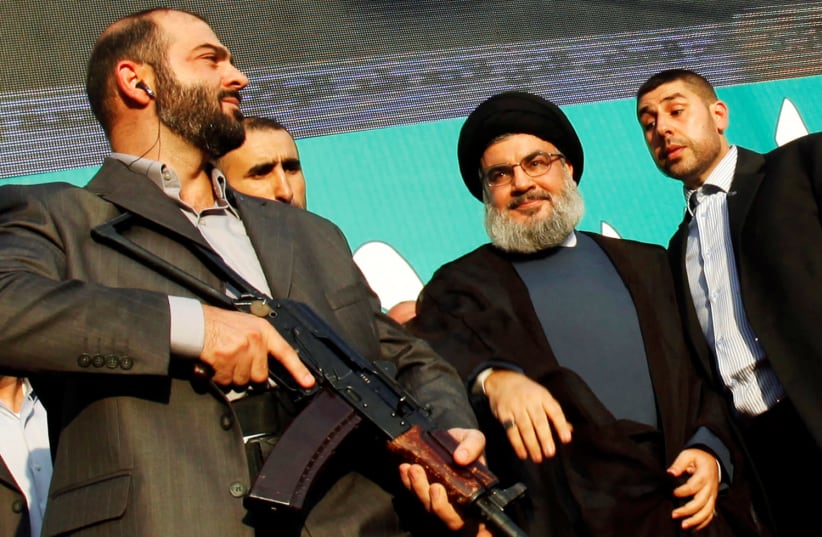“While Nasrallah is our greatest enemy to the north, he is Lebanon’s biggest problem from within Lebanon,” he said. “We see the tragedy that happened in Lebanon... just think about what would happen if that would be repeated with Iranian weapons in Lebanese villages. We are dealing with enemies who are operating and storing weapons in a civilian environment. If we have no choice but to fight, it might have harsh implications.”
In his first briefing to the committee as defense minister and the first address by a defense minister to the committee since November, Gantz said the Lebanon blast, which left at least 158 people dead, dozens missing and thousands injured and homeless, could have been worse because Hezbollah keeps explosives in the homes of civilians.
“The fact is that in Lebanon there are homes with a guest room and a missile room,” he said. “And when that missile explodes, the guest room won’t stay intact, and Lebanese society will pay a heavy price.”
Israel needs to continue to take action with the rest of the world to prevent Iran from getting nuclear weapons, Gantz said. Israel also must stop Iran from opening a terrorist branch in Syria, he said, and is working to prevent it from establishing itself in the war-torn country and elsewhere in the region through a variety of means.“Iran is continuing to try to achieve nuclear capabilities” Gantz said. “It has proxies in many countries around the world and in the region. We must not ignore this danger.”
“Continuing pressure on Iran and our determined actions to continue the embargo on Iran must remain a top priority,” he added.
Regarding the fight over the state budget, Gantz said political stability was necessary in light of regional realities. The IDF needs the certainty of a long-term budget to be able to function better, he said. He recalled that as IDF chief of staff, he had prepared three different plans, and none of them were given a budget.
The “failure to approve a multiyear plan for the IDF is a criminal inefficiency,” Gantz said.
“Once there is a stable budget, the system is able to function efficiently and utilize the resources well within itself and with the defense industries,” he said.
Due to Israel’s successive elections and political stalemate, the military has had no budget for the past two years and has been operating on monthly allowances based on a 12th of its 2018 budget.
With no budget, the IDF had to delay procurement and long-term projects and cancel training programs.
The military’s budget for the Momentum multiyear plan has not yet been agreed upon with the Finance Ministry. The IDF says the available resources along with changes in internal priorities will allow it to implement many of the plan’s recommendations. If not, there will be a risk to Israel’s national security, the military believes.
In a warning to Shas and United Torah Judaism, Gantz said that if they let Netanyahu initiate elections, a new haredi (ultra-Orthodox) draft bill that could have been to their liking would not be passed.
Foreign Affairs and Defense Committee chairman Zvi Hauser (Derech Eretz) said security concerns do not permit elections.
“[Iranian Ayatollah Ali] Khamenei and Nasrallah are hoping for elections in Israel,” he said.
